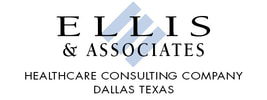THE BUSINESS OF MEDICINE FOR RESIDENTS, FELLOWS AND NPs: How the “New Normal” Won’t Be So New.7/29/2020
Last month’s blog post (on www.ellisandassoc.com) talked about how the job interview experience would be different as a result of the changes many practices are witnessing as a result of Covid-19, and how a working knowledge of these changes would be so important to make a part of the job interview process. Failure to explore these changes and discuss them with prospective employers would be a major mistake in finding the best job opportunity.
As noted, the importance of social media in marketing a new practice, the rise of telemedicine, creating a secure environment for patient visits, and the possibility of new payment models will be very different in the new normal. The delivery of medicine will change. But some things won’t change. There will still be a shortage of physicians, especially primary care. Hospitals will still be making efforts to steer surgeries their way, as surgical revenue becomes their mainstay. EHR platforms should still be scrutinized for their ways to reduce physician’s expense of non-compensated time (as opposed to increasing it!). Nurse practitioners will take a greater role in caring for rural populations. Psychiatrists will be in great demand as mental health issues expand in our society (even more-so as the “defund the police” efforts try to remove the police from handling these issues). Working to define a good work-life balance will be an on-going process for physicians and nurses of all kinds. And, most importantly, the healthcare system will continue to need the input of all providers in preparation for pandemics, both national and local in nature. What will not change is the ways in which you get paid. Or at least where the money comes from. Insurance companies will still be in control and will be working to find ways to incentivize value, minimize their risk on follow-up visits, create narrow networks of select providers and hospitals. Surgical procedures will continue down the path of “bundling” require all stakeholders to negotiate together—hospitals, surgeons, therapists, ASCs, and insurance companies—to create a fair and equitable pricing structure. Businesses will get more involved in the employee insurance cost issue and look to create their own self-funded insurance plans and negotiate directly with hospitals and physicians on pricing. Add questions about reimbursements—where from, how much, how they might change—to any conversations you have with potential new employers, or, if you’re currently working for someone, get in the loop on potential changes in the revenue structure of your practice. Although patients still foot most of your bill, the way their money flows to you will come under constant tuning in the future, and it may be constant. Make sure you are part of that information flow! —TOM ELLIS III. www.firstmedpractice.com |
I welcome your comments and thought. Please send to me at [email protected]Archives
May 2021
|
|
© 2023 Ellis and Associates
|

 RSS Feed
RSS Feed